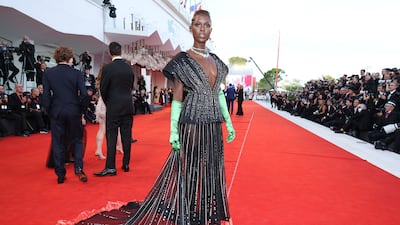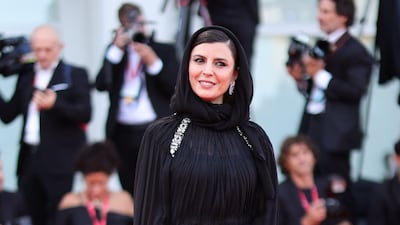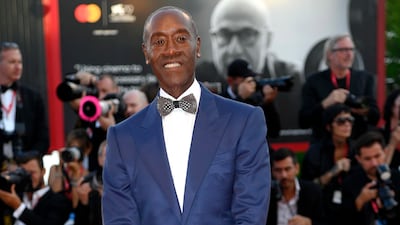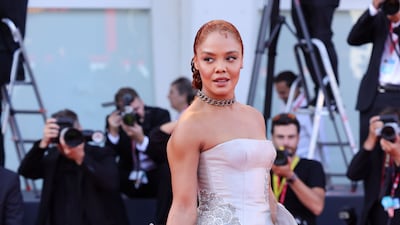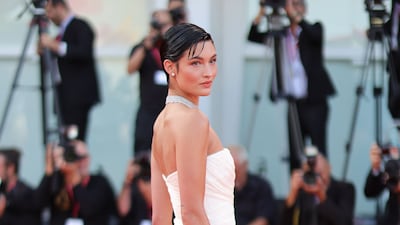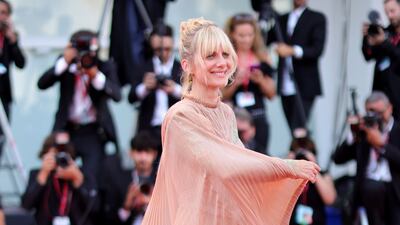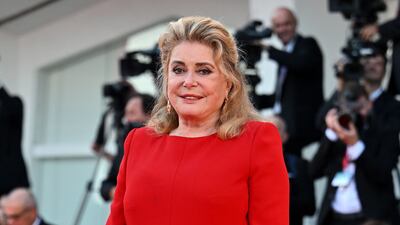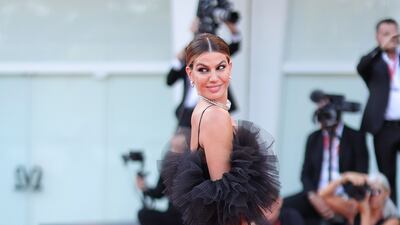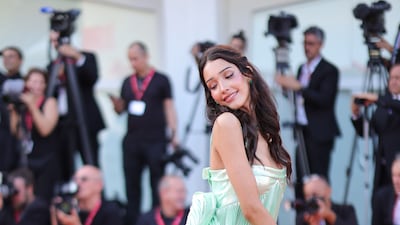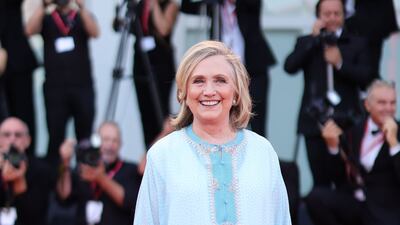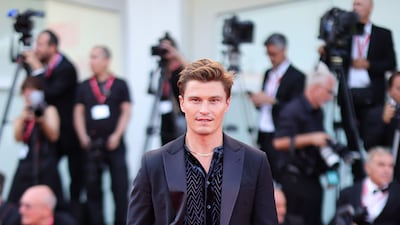I am sitting in the studio of Artemisia Gentileschi, the 17th-century Italian Baroque painter. A mouse scuttles across the floor and a bird flies in and out of the window. Hovering in front of my eyes, her famed self-portrait as Saint Catherine of Alexandria, a work that cemented her image in the annals of art history.
Appearing at this year’s Venice International Film Festival, (Hi)story of a Painting: The Light in the Shadow, directed by Quentin Darras and Gaelle Mourre, is not exactly a film in the traditional sense.
I’ve come to investigate Venice Immersive, the XR — extended reality — section of the festival. The entire collection is housed at Lazzaretto Vecchio, an island that’s a short hop from the Lido, where the rest of the festival plays.
Between 1403 and 1630, this grand, sprawling building housed a leper colony and a hospital. Today, its filled with cutting-edge virtual reality technology, where festival-goers don Oculus VR headsets and look, frankly, rather silly, gesticulating wildly, as they are transported into other worlds.
While Darras and Mourre’s film is primarily designed to encourage children to become engaged with art history — the graphics are colourful and simple — it is far from the only application found here.

In Tu vivras, mon fils (Stay Alive My Son), participants are encouraged to learn about Cambodia, when Pol Pot and the Khmer Rouge committed horrifying atrocities against their own people. The story is based on the memoirs of Pin Yathay, a former engineer who so vividly documented Cambodia’s killing fields.
It’s a game in which you can move around the landscape, picking up objects, solving puzzles, but not one like I’ve ever played before. After a while, I start to feel queasy — too much disorienting VR can do that to a person — but perhaps being submerged in this upsetting world is also causing it.
Directed by Victoria Bousis, this 35-minute effort is one of 30 VR films in competition this year — there are plenty more out-of-competition too. The VR section began in 2017, and judging by the crowds here, it’s grown in popularity.
Around the building, there are dozens of booths — a chair, a flat screen TV, a white curtain encircling the space — where viewers can plug in. Good-natured assistants are there to help. One told me to avoid Kingdom of Plants with David Attenborough, a 15-minute delve into the undergrowth, if I had a fear of insects.
Not being keen on spiders, I decided to give that one a miss. But just a short stroll through the building suggests what a wide variety of applications the VR tech is now being used for.

In Space Explorers: The ISS Experience, directed by Felix Lajeunesse and Paul Raphael and shot over two years entirely in space, you can see first-hand what it’s like to float in space. With our planet and its atmosphere captured in the stereoscopic 3D, 360-degree format, it dwarfs any documentary experience, even on an IMAX screen, that you’ve ever had.
Yet the narrative is surprisingly well catered for here too. In the 42-minute On The Morning You Wake (To The End of the World), filmmakers Mike Brett, Steve Jamison, Pierre Zandrowicz and Arnaud Colinart explore history, poetry, politics and more across three chapters.

Its subject is nuclear security, beginning with the moment in January 2018 when a ballistic missile alert was accidentally issued in Hawaii, with the chilling words: “This is not a drill”.
As I put on the headset, giving me the panoramic viewpoint that VR so elegantly provides, a lodging appears behind me and two figures watch a beautiful Hawaiian sunset. Before long, I will be sinking into a huge storm drain as parents usher their terrified children into the underground space for safety. From an Italian art history lesson to the shadow of a (thankfully false) nuclear attack, it’s a very unexpected reality indeed.
Venice Immersive runs at the Venice International Film Festival until September 10







